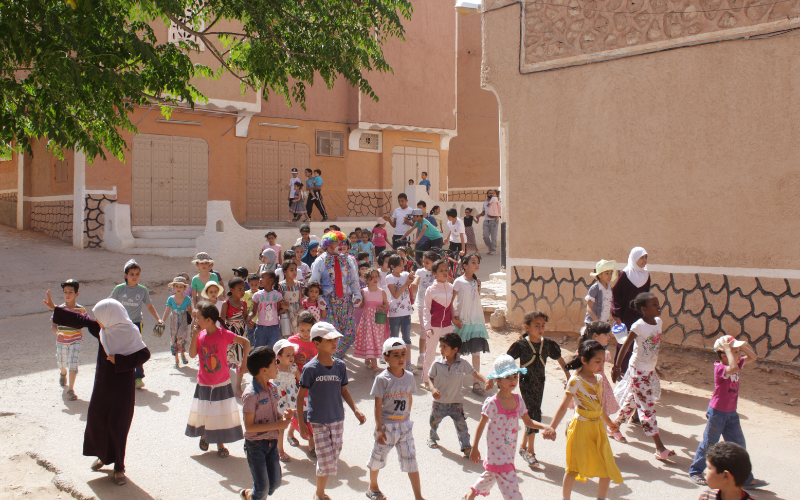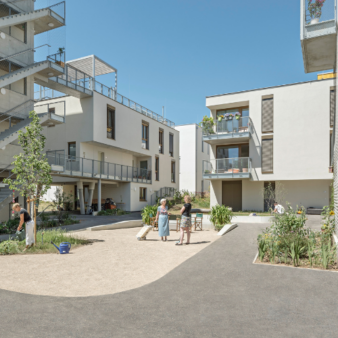When Spain’s housing bubble ‘burst’ following the 2008 global financial crisis, thousands of families lost their homes to repossession. With homeownership now out of reach for many, pressure on the rental market has increased exponentially, resulting in year after year of soaring rents and unstable tenancies.
In the face of this growing housing crisis, a group of residents in Barcelona decided to take matters into their own hands and build the decent, more affordable and environmentally-friendly homes they wanted to live in. They set up the La Borda housing co-operative with the aim of creating an equal, intergenerational community and providing an alternative to homeownership, the rental market and public housing.
La Borda is the first housing co-operative in Spain ruled by ‘grant of use’ and built on land designated for state-subsidised housing. Under the grant of use model, the co-operative pays an annual fee that gives them the right to use the land for 75 years. Members pay a monthly contribution to the co-operative that allows them to live there – they do not own the property, but nor are they tenants.
The co-operative process started in 2012, construction in 2017 and in January 2019 residents moved in. The building comprises 28 apartments, which house 60 people in the Sants neighbourhood of Barcelona. An apartment for guests was completed in May 2019, and the communal kitchen/dining area is under construction. La Borda currently has one part-time employee, and its 50 adult residents are responsible for the self-management of the co-operative.
The project in practice
La Borda forms part of the wider government-led Can Batlló urban planning project from 1976. This had set out plans to build social housing and create green areas on land formally occupied by the Can Batlló factory. Little progress was made, so in 2011 the community began to initiate the projects themselves, including the creation of the La Borda housing co-operative.
The project started with a small group of 10 households, who promoted it in the neighbourhood on a first-come-first-served basis to reach the 28 households they needed to proceed. The use of public land means La Borda residents must comply with official criteria for state-subsidised housing. This includes owning no property and an annual household income of less €40,000 ($45,469 USD). Each household had to make a mandatory initial contribution of €18,500 ($21,029 USD).
Direct involvement of co-operative members has been central to La Borda’s development. Residents participate in decision-making and management through seven committees: legal, architecture, economy, communications, secretariat, self-build and communal living. The co-operative meets monthly (with attendance of at least one representative per household) and has an executive committee comprised of one representative from each committee.
To promote community cohesion and reduce costs, members participated in the construction of the building and community spaces. Leisure and wellbeing activities are also held to prevent and resolve conflicts that are common to collective processes.
A mutual support fund – €5 ($5.69 USD) per household per month – has been put in place to help members struggling to meet their costs. So far, no household has requested this support. If residents decide to leave, they are refunded their initial payment of €18,500 ($21,029 USD) and the new residents pay the same amount. So far, none of the original residents have left and there is a waiting list of over 70 people.
The building was constructed from pine wood sourced from Spain’s Basque country and its energy-efficient passive design incorporates ‘corralas’ – traditional interior open-air corridors and courtyards that enhance the building’s climatic comfort. The 28 apartments are comprised of a central 40m2 module that includes a kitchen, bathroom and two small rooms. Additional units can be added as bedrooms or transferred from one apartment to an adjoining one if a household’s needs change.
The total cost of the project was €3,246,557 ($3,690,411 USD) and funding was obtained from different sources. Coop57, an ethical financial services company, provided 52% through equity loans and bonds, while residents provided 18% of the funds. The remaining 30% was raised through contributions from Barcelona City Council, the Government of Catalonia, the Spanish national government, social economy organisations and individuals.
La Borda’s operating costs for the next 10 years are around €180k-200k ($205k-227k USD) per year. This includes repayment of the main loan, planned improvements, maintenance and expenditure associated with borrowing. The co-operative’s annual fee for use of the land was €3,731 ($4,193 USD) in 2019 and it will be adjusted based on the Consumer Price Index.
Operating costs will be mostly covered through residents’ monthly contributions and income-generating activities carried out by the co-operative, such as training sessions for the general public, public servants and architects, and the rental of commercial space on the ground floor of the building. La Borda also receives income by providing climatic data from the building for research purposes.
Residents’ monthly contribution is determined by the size of their apartment and the cost of shared spaces. The fee is €8.71 ($9.90 USD) per square metre, compared with around €11 ($12.50 USD) for local private rentals and around €7.85 ($8.92 USD) for public housing. Once the loans have been repaid the cost of the contributions will fall to around €5.86 ($6.53 USD) per square metre.
Social and environmental impact
As a passive building, La Borda has a lower than average environmental impact (66.37 kwh/m2 per year, compared with 87.49) and reduced CO2 emissions both in its construction as well as in its lifetime. Residents have participated in monitoring and training to ensure appropriate use of the building’s bioclimatic design and multiple energy and water-saving features. As a result, most of the apartments did not need heating last winter. The building’s energy consumption and environmental performance is being analysed by the Energy Agency of Barcelona to ascertain whether it is replicable.
The project also provoked a change to Barcelona City Council’s building regulations, so that La Borda – and any future initiatives like it – do not have to include a car park.
By funding the project through ethical sources and using providers from the social market, La Borda has had a considerable impact on the social and solidarity economy of Catalonia. It has also contributed to the creation of La Dinamo Fundació, which aims to extend the co-operative model based on grant of use.
As for La Borda’s community, the building’s passive design is helping to alleviate energy poverty among residents and lower general living costs. It is also improving health, including among children who have suffered fewer respiratory illnesses since moving into the building.
The future
Housing co-operatives ruled by grant of use are still a relatively new concept – there are only three currently operating in Catalonia with another three in the planning phase.
La Borda has become an important reference for these and other co-operative movements across Spain, and it is actively supporting and transferring knowledge and experience to other projects, including through the collaboration with La Dinamo Fundació. The group also aims to influence municipal policy to help incorporate the grant of use model into the country’s public housing programmes.
La Borda’s members have not only built the secure and environmentally friendly homes they wanted but have also created a community based on shared values. It is a pioneer initiative that proves there is a more equitable alternative to traditional ownership and rental models for the thousands of Spaniards in housing need.
View the full project summary here
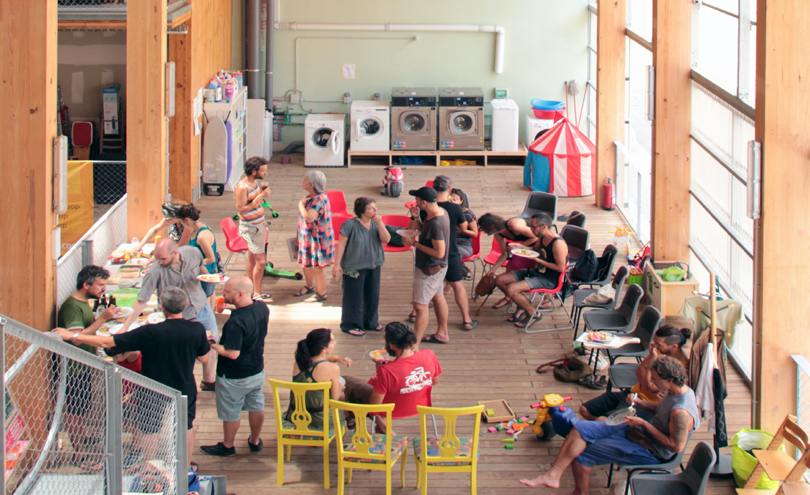
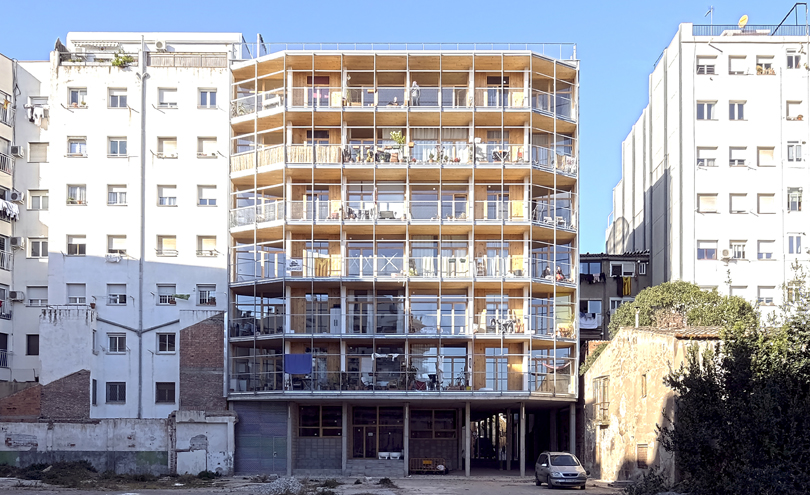
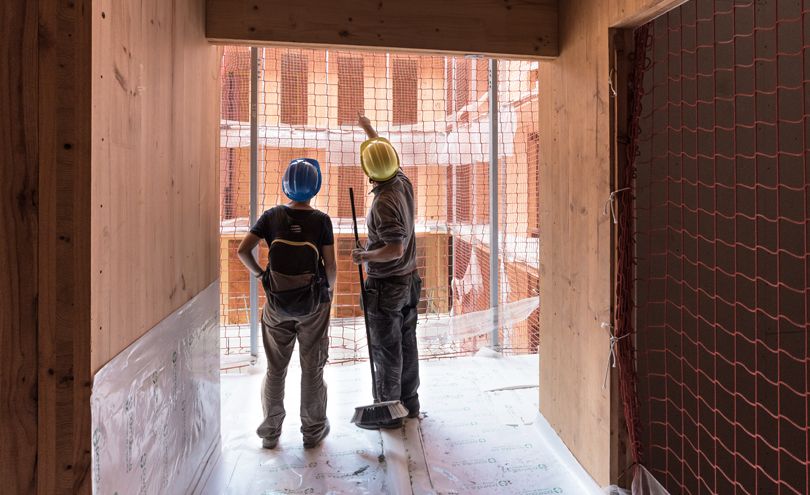
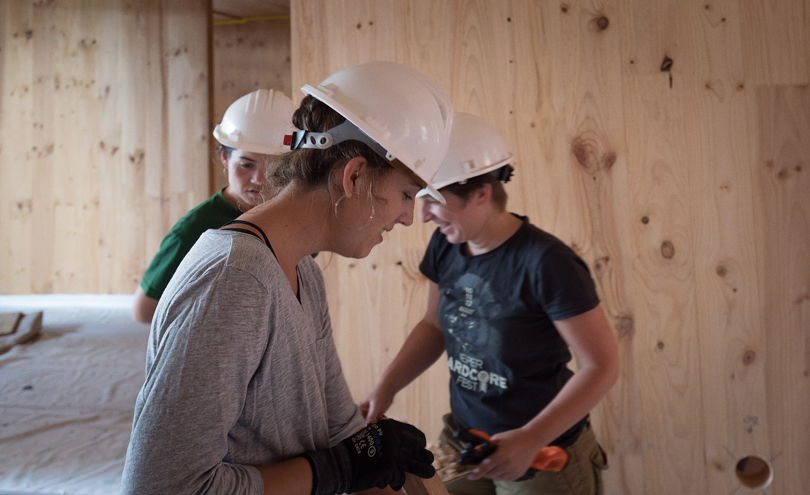
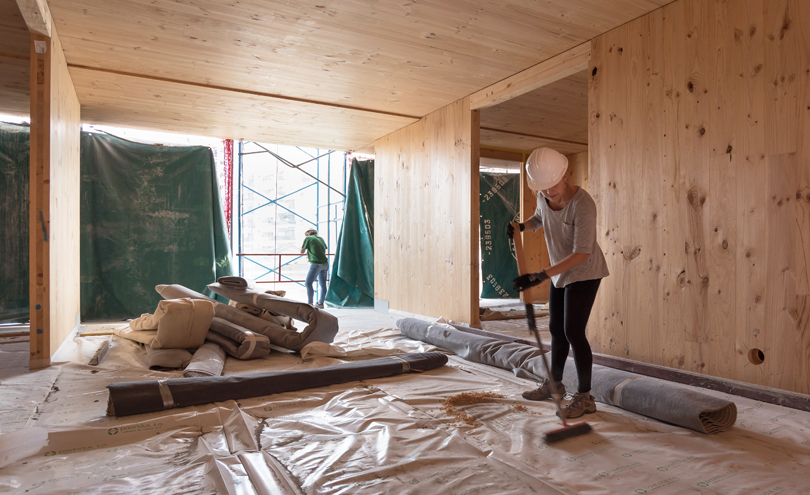
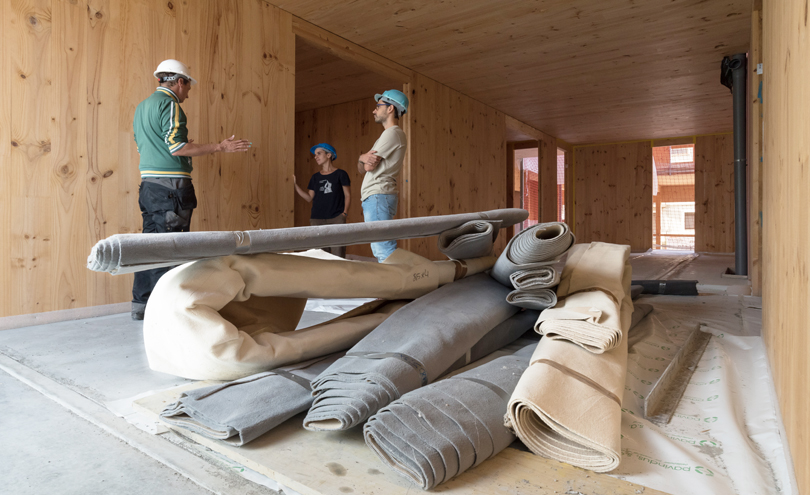

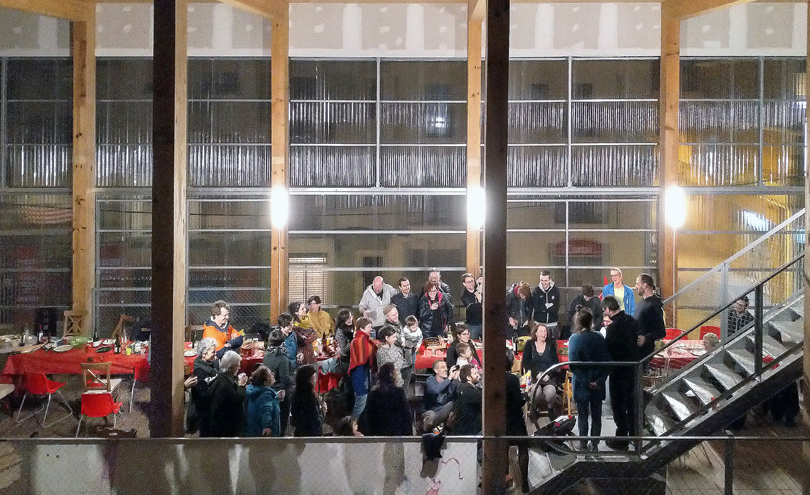
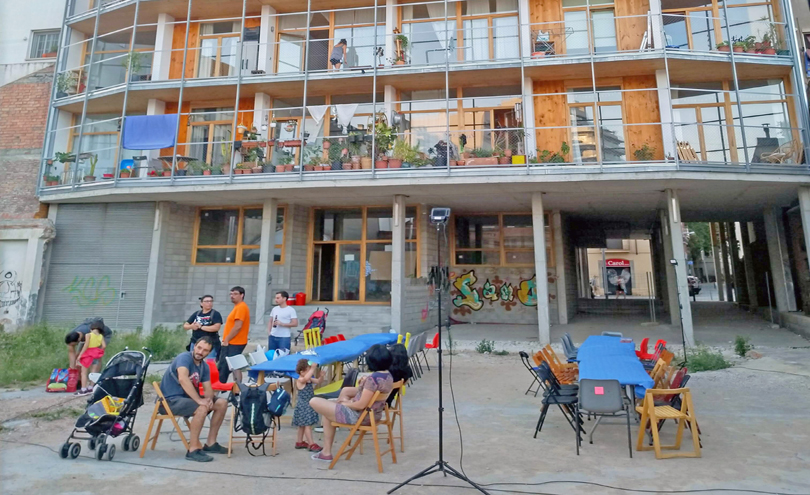
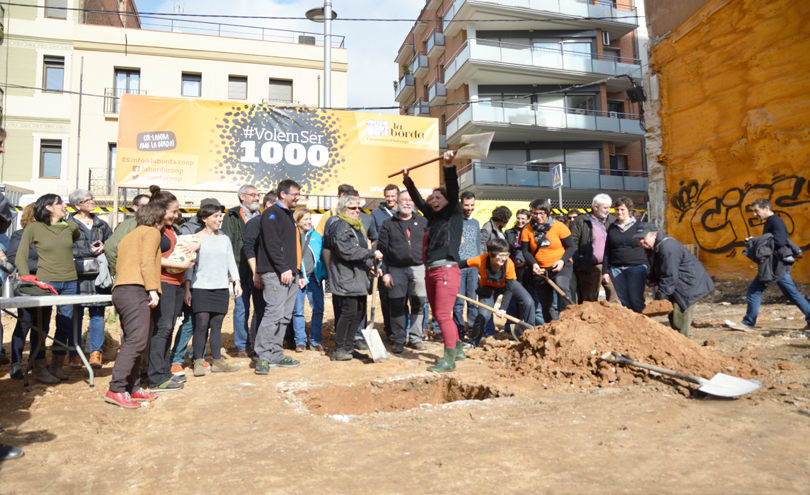
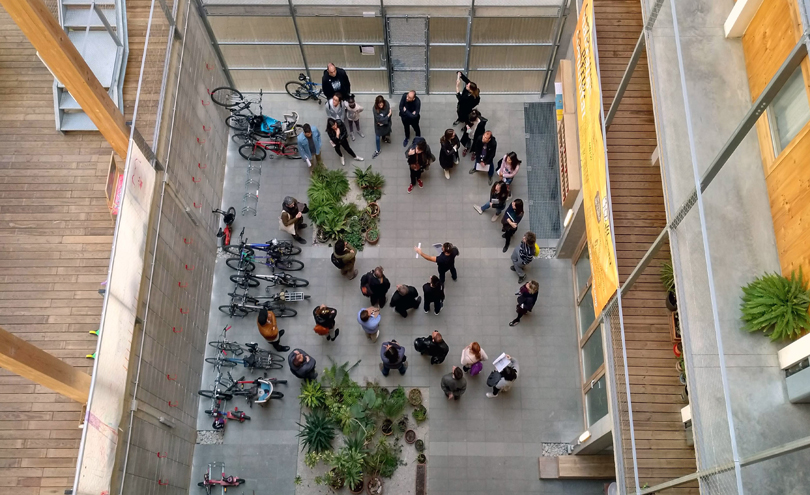
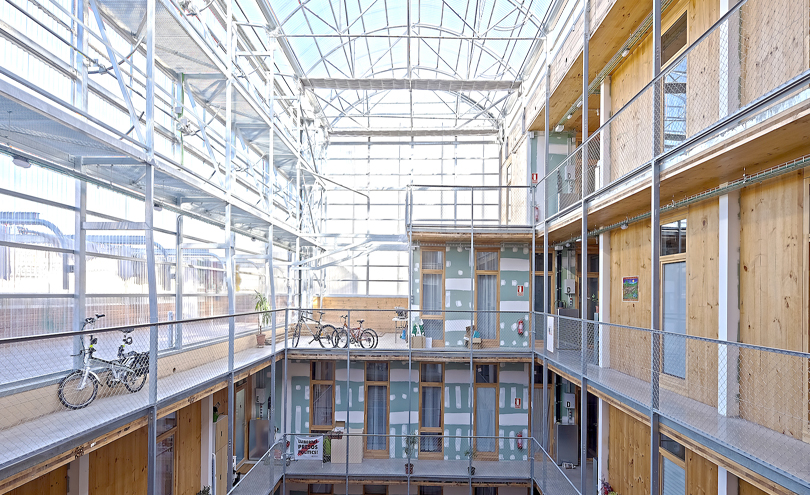

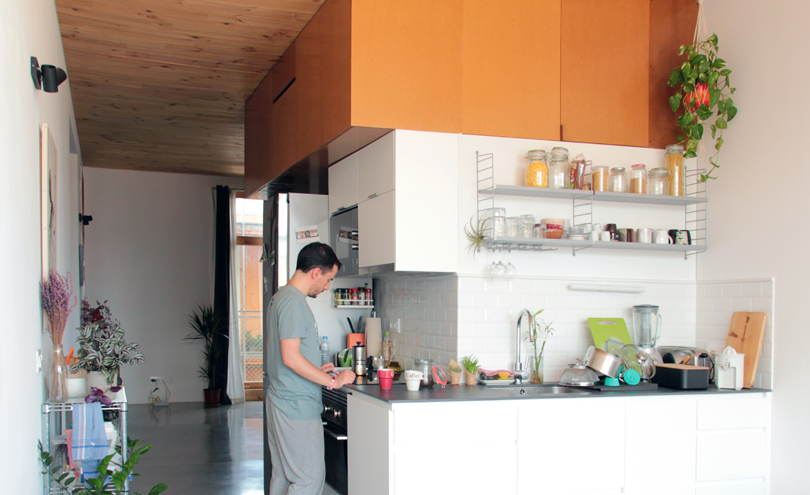

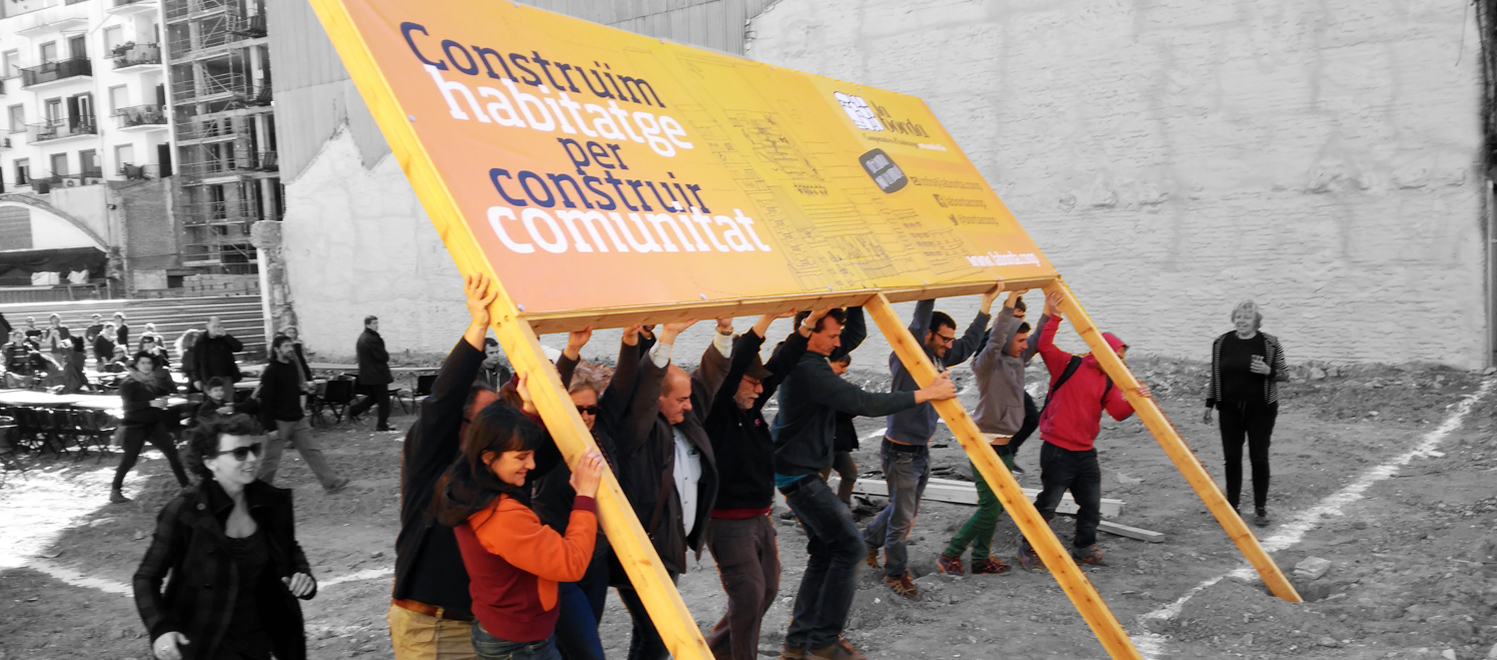
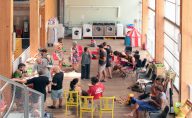
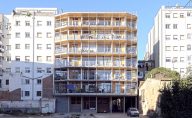
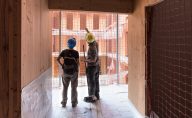
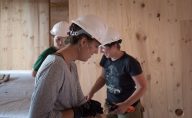
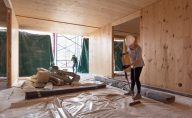
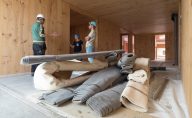
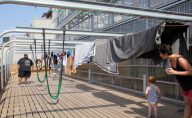
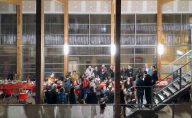
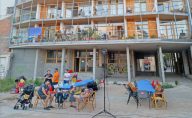
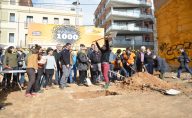
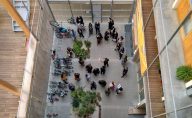
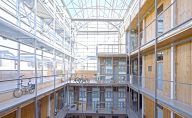
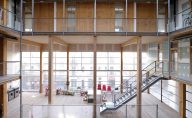
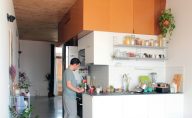
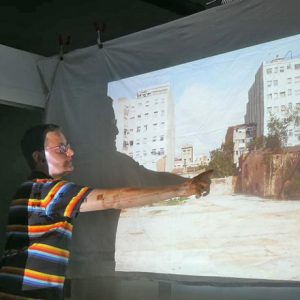 Joan has been in Barcelona for fourteen years and moved flat nineteen times before living at La Borda.
Joan has been in Barcelona for fourteen years and moved flat nineteen times before living at La Borda.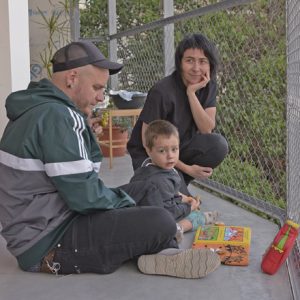 Paul, Ray and Elba are a family living at La Borda.
Paul, Ray and Elba are a family living at La Borda. 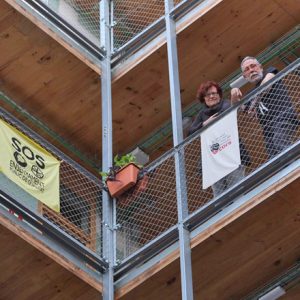 Ferran is over 60 years old and lives in the co-operative.
Ferran is over 60 years old and lives in the co-operative.